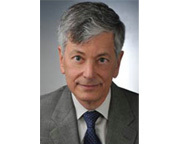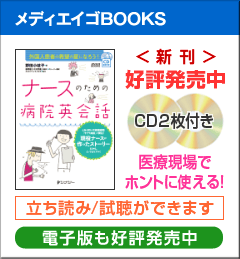

(c) UC Regents
UCLAのJerome Siegel教授
神経伝達物質ヒポクレチンが,幸せを感じるときに脳で多く放出されることが分かった。難治性てんかん患者8名の脳の中の,眠気に関与する物質MCHとヒポクレチンを測定した結果から明らかになった。測定では,検体を採取しながら,食事,会話,テレビを見るなどの患者の行動を記録し,さらに1時間ごとに気分を自己評価させた。すると,肯定的な感情または怒りを感じたとき,人と接している際,覚醒時にヒポクレチンが増加した。測定した研究班は以前,同物質がげっ歯類で快を追求する行動に必要なことを示しており,今回の測定により,人間に投与すると気分や注意力を高める効果を発揮する可能性が示されたと述べている。(吉田素子)
Is this Peptide a Key to Happiness?
UCLA Findings Suggests Possible New Treatment for Depression, Other Disorders
What makes us happy? Family? Money? Love? How about a peptide?
The neurochemical changes underlying human emotions and social behavior are largely unknown. Now though, for the first time in humans, scientists at UCLA have measured the release of a specific peptide, a neurotransmitter called hypocretin, that greatly increased when subjects were happy but decreased when they were sad.
The finding suggests that boosting hypocretin could elevate both mood and alertness in humans, thus laying the foundation for possible future treatments of psychiatric disorders like depression by targeting measureable abnormalities in brain chemistry.
In addition, the study measured for the first time the release of another peptide, this one called melanin concentrating hormone, or MCH. Researchers found that its release was minimal in waking but greatly increased during sleep, suggesting a key role for this peptide in making humans sleepy.
The study is published in the March 5 online edition of the journal Nature Communications.
"The current findings explain the sleepiness of narcolepsy, as well as the depression that frequently accompanies this disorder," said senior author Jerome Siegel, a professor of psychiatry and director of the Center for Sleep Research at UCLA's Semel Institute for Neuroscience and Human Behavior. "The findings also suggest that hypocretin deficiency may underlie depression from other causes."
In 2000, Siegel's team published findings showing that people suffering from narcolepsy, a neurological disorder characterized by uncontrollable periods of deep sleep, had 95 percent fewer hypocretin nerve cells in their brains than those without the illness.
[単語和訳]
Peptide:ペプチド Depression:うつ病 Disorders:障害
neurochemical:神経化学的な underlying:~の根底にある social behavior:社会的行動 neurotransmitter:神経伝達物質 hypocretin:ヒポクレチン subjects:被験者
boosting:~を増加させること mood:気分 alertness:注意力 laying the foundation for:~の基礎を築く psychiatric disorders:精神障害 abnormalities:異常 brain:脳の
In addition:加えて melanin concentrating hormone:メラニン凝集ホルモン Researchers:研究者 minimal:最低限
online:オンラインの
sleepiness:眠気 narcolepsy:ナルコレプシー senior author:主席著者 psychiatry:精神医学 Neuroscience:神経科学 deficiency:欠乏,欠損
suffering from:~に罹っている neurological:神経学的 characterized by:~を特徴とする uncontrollable:制御できない nerve cells:神経細胞


